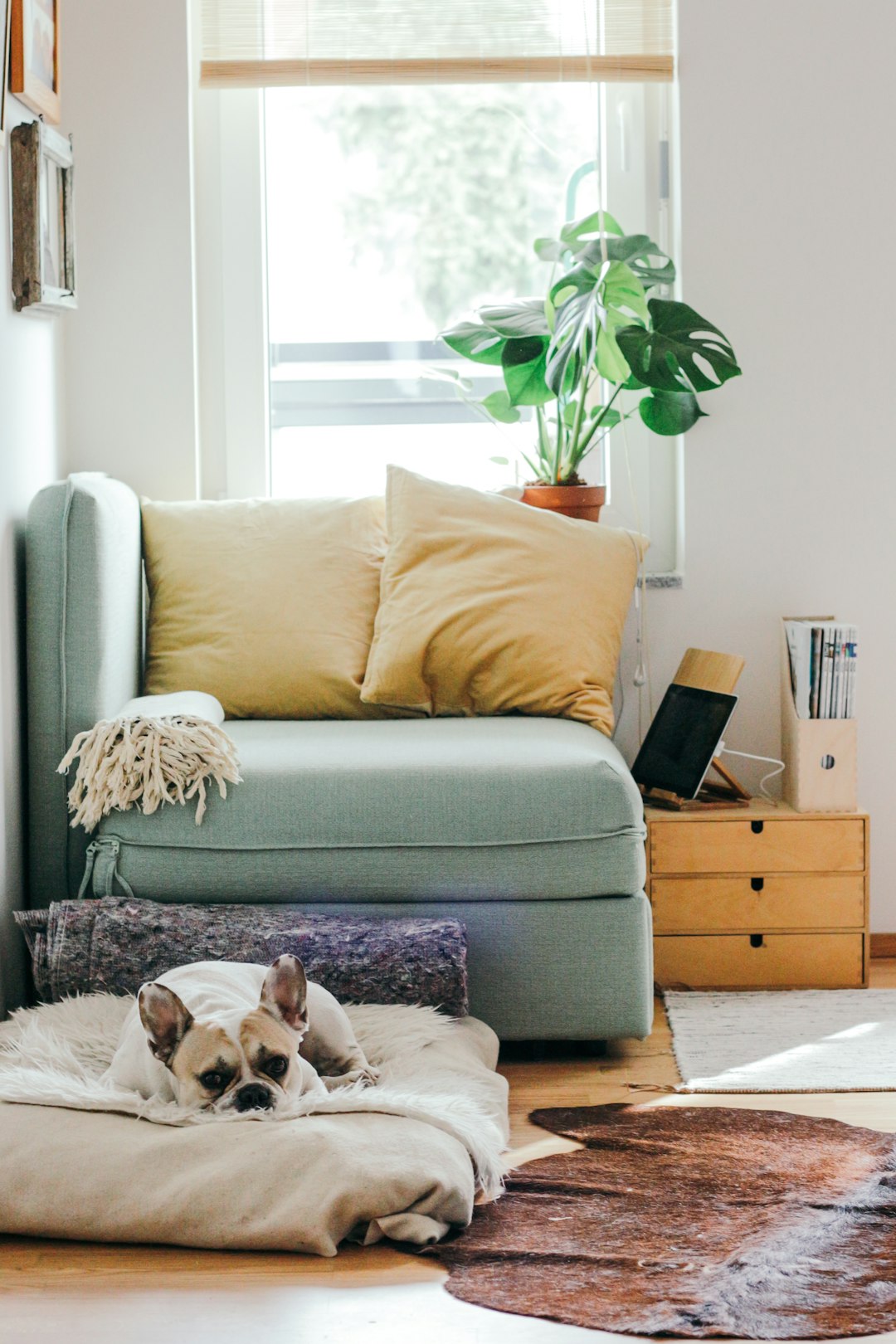Assess Your Home’s Vulnerabilities

Securing your home during a vacation starts with a thorough assessment of its vulnerabilities. Understanding where your home’s weaknesses lie can help you take targeted actions to enhance security.
Begin by taking a walk around your home, both inside and out, to identify potential entry points for intruders. Pay close attention to windows, doors, and any other opening that could be exploited. Note if any doors or windows are old, weak, or lacking robust locking mechanisms.
Don’t forget to examine the area surrounding your property. Overgrown shrubs or trees can provide cover for burglars. Additionally, check if your property is well-lit at night. Dark areas can offer concealment for unauthorized individuals.
An often overlooked aspect is the visibility of valuable items from outside. Ensure that valuables like electronics, jewelry, and other expensive items are not easily visible through windows.
Once you have identified these vulnerabilities, you can begin to take steps to address them, which will be covered in the following chapters. Taking the time to assess your home’s security critically is the first step in ensuring it remains safe while you’re away.
Strengthen Physical Barriers
Maintaining the security of your home requires fortifying physical barriers to prevent unauthorized access. This encompasses reinforcing doors, windows, and entry points to make it difficult for intruders to gain entry.
Reinforce Entry Doors
Entry doors are among the most vulnerable points in your home. Ensure they are solid and sturdy. For maximum security, replace hollow-core doors with solid-core or metal options. To enhance security further:
- Install Deadbolts: A deadbolt provides additional strength against forced entry.
- Use Long Screws: Secure door hinges and strike plates with 3-inch screws to reinforce the frame.
- Consider a Door Security Bar: This adds an extra layer of defense against forced entry.
Secure Windows
Windows are another common entry point for burglars. Implement these measures to secure them:
- Install Window Locks: Ensure all windows, especially ground-level ones, are equipped with key-operated window locks.
- Use Reinforced or Impact-Resistant Glass: This makes it harder for intruders to break in.
- Add Window Bars or Grilles: These provide a strong physical barrier while still allowing for ventilation.
Strengthen Sliding Doors
Sliding doors can be a weak spot in home security. Strengthen them with these actions:
- Install a Security Bar or Rod: Place it in the track to prevent the door from being forced open.
- Use Shatterproof Film: Apply this to glass doors to make them more resistant to breaking.
- Upgrade Locks: Ensure sliding doors have robust locking mechanisms.
Garage Security
The garage is often overlooked but can be a significant point of entry. Increase its security with these tips:
- Use a Strong Door: Ensure the connecting door between the garage and your home is as secure as your front door.
- Install a Garage Door Lock: Prevent it from being manually opened by securing it with a lock when you’re away.
- Conceal the Garage Door Opener: Don’t leave the opener in your car where it can be easily accessed.
By taking these steps to bolster the physical barriers of your home, you significantly reduce the risk of break-ins and enhance your overall security during your vacation.
Utilize Smart Home Technology
To enhance the security of your home during a vacation, utilizing smart home technology can provide peace of mind and significant safety benefits. Modern smart home devices allow homeowners to monitor and control various aspects of their property remotely.
Types of Smart Home Devices
Several smart home devices can increase security, including:
- Smart Cameras: Provide live streaming and recording capabilities.
- Smart Locks: Enable remote locking and unlocking of doors.
- Smart Lighting: Allow for scheduling and remote control to simulate occupancy.
- Security Systems: Integrated systems that offer alarms, motion detectors, and monitoring services.
Benefits of Smart Home Technology
Implementing smart home technology for security has several advantages:
- Remote Monitoring: Access live feeds and receive alerts from anywhere.
- Deterrence: Visible security systems can deter potential intruders.
- Automated Responses: Automation can trigger lights, alarms, or notifications based on activity.
Comparison of Popular Smart Security Devices
Here’s a comparison of some popular smart security devices based on their features and functionalities:
| Device Type | Example Features |
|---|---|
| Smart Cameras | 1080p HD, night vision, two-way audio |
| Smart Locks | Keyless entry, remote access, activity logs |
| Smart Lighting | Programmable schedules, motion detection, app control |
| Integrated Security Systems | Professional monitoring, emergency alerts, automation integration |
Considerations When Choosing Smart Home Technology
When selecting smart home technology for security, consider the following factors:
- Compatibility: Ensure devices are compatible with your existing systems.
- Ease of Use: Choose devices that are user-friendly and intuitive.
- Privacy: Look for devices with strong encryption and privacy protections.
- Cost: Balance the cost of devices and installation with the benefits they provide.
By leveraging smart home technology, you can substantially improve the security of your home while you’re away on vacation, ensuring a safer and more worry-free travel experience.
Notify Trusted Individuals

One of the most effective strategies to ensure your home’s security during a vacation is to notify trusted individuals about your absence. This can serve as a critical line of defense, providing an extra layer of surveillance and prompt response in case of any unusual activities.
Inform Neighbors: Neighbors can act as the first line of defense. Informing them about your travel plans allows them to keep an eye on your property and report any suspicious activities. A trusted neighbor can also collect your mail and packages to avoid obvious signs of your absence.
Enlist a House Sitter: If possible, consider having a friend or family member stay at your house during your absence. A house sitter can manage daily routines, such as taking out the trash, watering plants, and handling other chores, making it appear as if someone is home.
Leave Emergency Contact Information: Provide your emergency contact details to a trusted individual, including your phone number and the contact information of nearby family members or friends. This ensures that you can be reached quickly if an emergency arises.
Key Holder: Give a spare key to someone you trust. This person can perform regular checks and enter your home if necessary. Ensure that they understand your home’s security measures and alarm system, if you have one installed.
Here’s a summary of actions to take when notifying trusted individuals:
| Action | Details |
|---|---|
| Inform Neighbors | Provide travel dates and contact information |
| Enlist a House Sitter | Have them follow daily routines |
| Leave Emergency Contact Information | Include your phone number and a local contact |
| Key Holder | Give them a spare key and security instructions |
By notifying trusted individuals, you not only enhance your home’s security but also gain peace of mind, knowing that someone is keeping an eye on your property while you’re away.
Maintain an Appearance of Occupancy
Maintaining the appearance of occupancy while you’re on vacation can significantly deter potential intruders. Criminals often target homes that appear empty, so creating the illusion that someone is home is a critical security measure.
Use Timers for Lights and Electronics
Invest in timers that can automatically turn lights and electronic devices on and off at various times throughout the day and night. This helps create the appearance of regular activity within your home.
- Set timers to turn on lights in multiple rooms.
- Include devices such as televisions and radios to emit noise, suggesting someone is inside.
Keep a Car in the Driveway
If possible, leave a vehicle parked in your driveway or ask a neighbor to park there on occasion. An empty driveway can be a clear indication to potential burglars that no one is home.
Arrange for Lawn and Exterior Maintenance
Unkept lawns or piled-up mail and newspapers are telltale signs that a home is unoccupied. To avoid this:
- Hire a service or ask a neighbor to mow your lawn and trim any bushes or hedges.
- Have a trusted individual collect your mail and packages or put a hold on your mail delivery.
- Make arrangements to have snow shoveled if traveling during winter months.
Use Window Treatments Wisely
Leave your blinds and curtains in their normal positions. Closed blinds for an extended period can appear suspicious. Additionally, ensure valuables are not easily visible through windows.
Set Up Remote Surveillance
If you have smart home security cameras, monitor your property remotely using your smartphone. Some systems also allow you to interact with visitors via an intercom, which can be a further deterrent to burglars who think someone is attending to the home.
By following these steps, you can greatly increase the chances of maintaining the appearance of occupancy, reducing the likelihood of your home being targeted while you’re away.
Secure Valuables and Critical Documents
When preparing for a vacation, ensuring the security of your valuables and critical documents is essential to safeguarding them from potential theft or damage. Here are several practices to consider:
Use a Safe
Investing in a high-quality safe is a practical measure for protecting important items. Opt for a safe that is fireproof and waterproof to provide maximum protection. Secure the safe in a location that is hidden and challenging for intruders to access or remove.
Document Storage
Store passports, birth certificates, social security cards, and other vital documents in a safe or a locked drawer. Consider utilizing digital copies stored on an encrypted cloud service for an additional layer of security.
Jewelry and Valuables
Keep expensive jewelry and other small high-value items out of sight. A home safe or a discreet hiding spot are preferable. For items of exceptionally high value, consider storing them in a safe deposit box at a bank.
Electronic Device Security
Ensure that all electronic devices, such as laptops and tablets, are password-protected. Store these devices in a secure location when not in use. Additionally, back up important data to an external hard drive or cloud storage to prevent loss in the event of theft or damage.
Insurance Documentation
Maintain up-to-date insurance policies for valuable items. Keep a list of inventory, including photographs and receipts, in both physical and digital formats. This documentation can be crucial for filing claims in case of theft or damage.
- Store critical documents in a locked, hidden location.
- Use a fireproof and waterproof safe for added protection.
- Keep an updated inventory of valuable items with proper documentation.
- Back up important data and store it securely.
By following these steps, you can enhance the security of your valuables and critical documents while you are away, providing peace of mind during your vacation.
